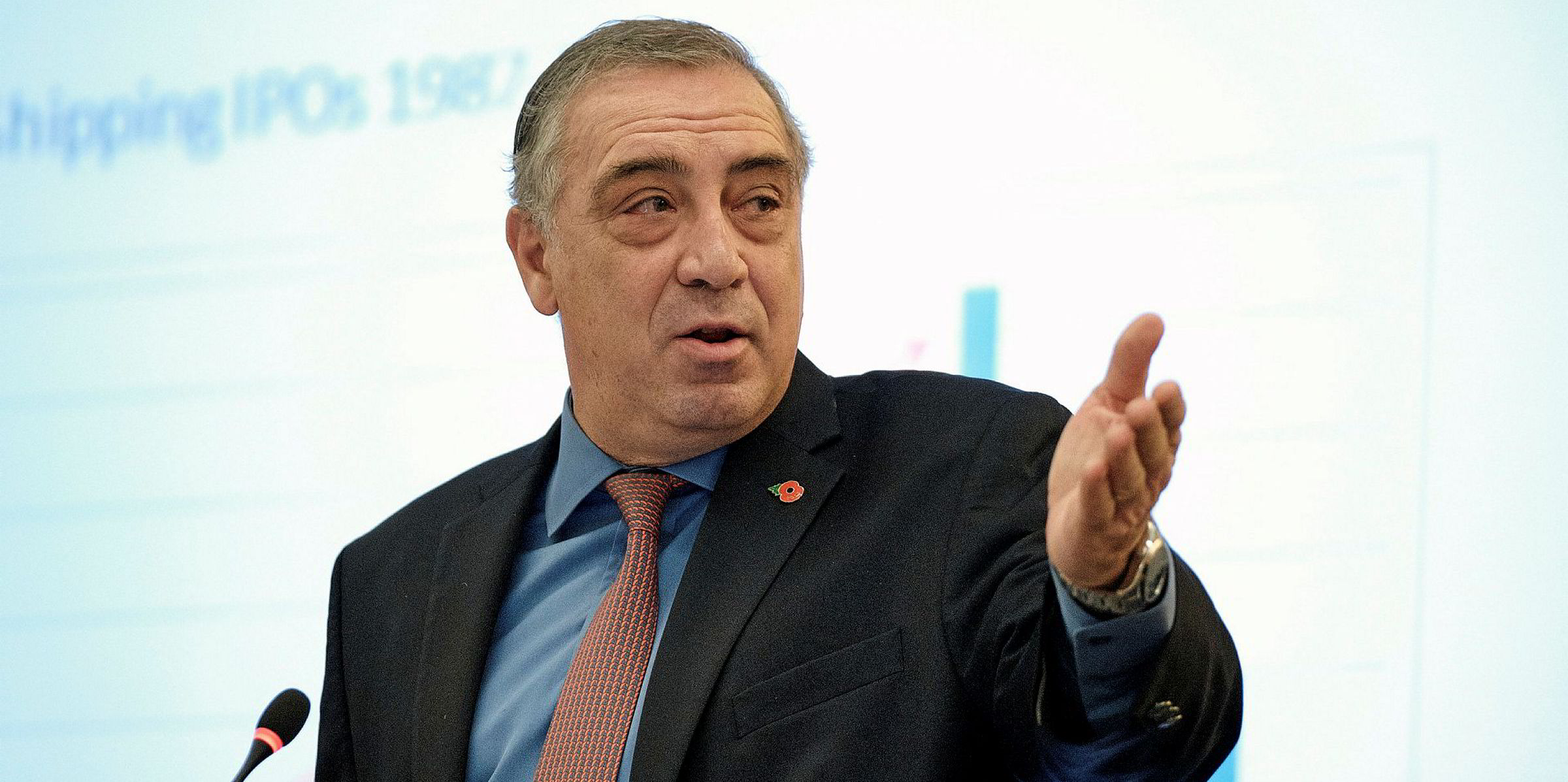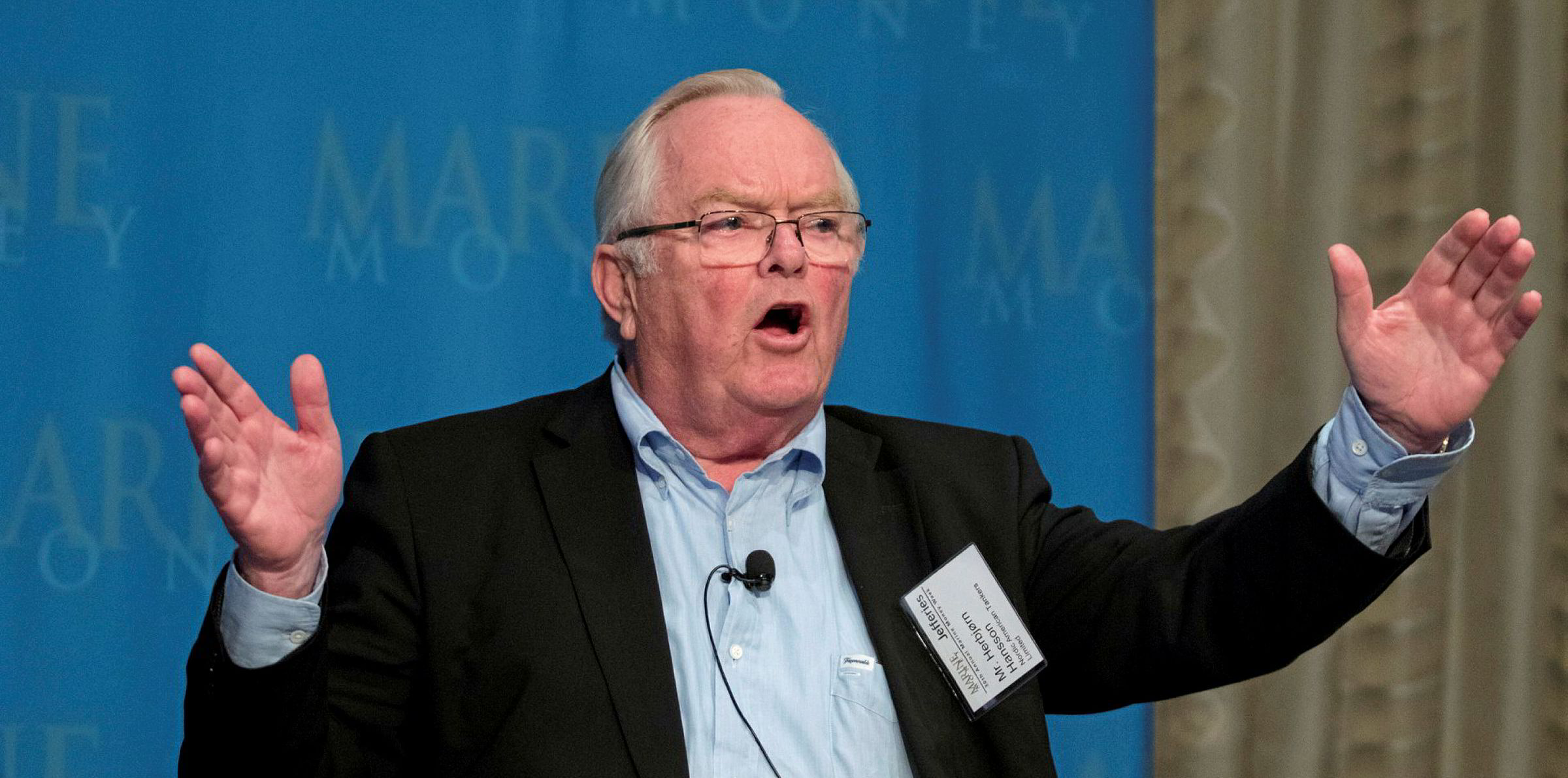Tsakos Energy Navigation (TEN) announced on Wednesday measures to shore up its share price and reduce debt, betting that tanker markets will crawl out of their current hole towards the end of 2020.
Encouraged by a record profit for in the first half, the New York-listed tanker owner also announced on Wednesday a special dividend of $0.375 per share for a second consecutive quarter.
The Tsakos family-backed company also said it was on course with a $20m share buy-back programme, on which it has already spent more than $8m so far.
These moves are underpinned by the belief that markets will look up in the following weeks.
“There are very good signs that in the rest of the year the market is returning to some sort of strong normality, so we are hoping to have a record year going forward,” TEN chief executive Nikolas Tsakos said in a conference call with investors.
Earlier in the day, the Athens-based company announced bottom-line net income of $55.2m for the first six months of the year, more than five times the $10.4m it earned in the same period of 2019.
Most of that profit was earned in the second quarter, where net income climbed to $33.3m from a $489,000 loss in the same period a year ago.
Above expectations
US investment bank Jefferies said earnings were above its estimates, due to lower than expected operating and interest costs.
Jefferies said it is increasing 2020 and 2021 profit estimates to reflect lower interest and preferred interest expense expectations.
These are based on open suezmax, aframax and panamax vessels earning $17,500, $15,000 and $10,500 per day in the second half of this year, and $35,000, $27,500 and $19,250 per day in 2021.
"We expect the company to continue to repurchase shares as they are currently trading at a 40% discount to NAV, but likely to remain relatively small in terms of number of shares repurchased," the investment bank said.
"Finally, paying down debt remains an active tool in the arsenal and is expected to continue to be a priority."
Strength to come?
Jefferies is forecasting third quarter rates weakness to be followed by fourth quarter strength.
"In recent months, spot rates have fallen well below the levels seen in 1H20 as floating storage demand unwinds and crude inventories are destocked," Jefferies said.
"Keep in mind that record-setting Ebitda earned in the first half of the year will more than offset the moderate performance in 2H20."
And the bank added: "Going forward, the degree of an economic recovery and the pace at which inventories are drawn down will determine how fast crude tanker transport demand will return."
Steam gone
TEN management acknowledged that the steam has gone out of the market in the third quarter.
“The third quarter has been a challenge,” chief financial officer Paul Durham said. “But again, we expect our time-charter hire alone to cover all our cash expenses.”
Market trends offer several silver linings, the company said.
“The supply of new tonnage has completely dried up, the contango effect has returned and expectations for a strong market after a seasonally slow quarter are becoming more likely,” TEN said in a press release.
“China is importing sizeable quantities of crude, locked-down Asian recycling yards are coming back to business and the recent emergence of congestion at various terminals in the Far East are promising signs.”
Market recovery is not far off, Durham said.
Cutting the debt, renewing the fleet
Using some of the cash set aside in the first-half boom, TEN said it would redeem, at par, $50m of debt notes by the end of the October.
In a further move to cut debt and renew its fleet, the company said it sold four tankers in the first half.
It did not identify the ships, but TradeWinds understands it involves three suezmaxes and a handysize tanker.
Two of the suezmaxes in question were offloaded in a sale-and-leaseback agreement.
TEN said it has further sales of older tanker tonnage in store. Earlier this year, Durham said the company was planning to offload eight tankers throughout 2020.
The tanker owner aims to replace most of them with younger tonnage. It recently took delivery of a suezmax newbuilding, the 158,000-dwt Apollo Voyager (built 2020), from Hyundai Heavy Industries (HHI). It will take delivery of another one, the Artemis Voyager, by the end of 2020.
On top of that, the company confirmed it has ordered one firm 155,000-dwt DP2 suezmax shuttle tanker to be delivered in 2022. Another two optional ones may follow in 2023.
In line with company policy, all its tanker newbuildings are backed up by secured long-term employment. The DP2 ships are backed up by "a long-term accretive contract" with a major utility, TEN said on Wednesday.
Market sources told TradeWinds this could be Portugal's Galp Energia.
TEN, by contrast, is much more circumspect in expanding in LNG carriers, where it has two ships in the water.
The company seems to have decided against exercising an option to build an LNG carrier newbuilding at HHI, on top of the 174,000-cbm ship it already has under construction there and which is due for delivery next year.
Company management expressed the hope its robust results will feed through its share price.
“I think our second-quarter and first-half results tick all the boxes of an impressive performance,” company chairman Takis Arapoglou said in the conference call. “We look forward to these results filtering through to our stock price, eventually.”
Shareholders, however, apparently failed to be immediately impressed. In what was shaping up to be a difficult day for tanker shipping stocks in general, TEN shares were trading down 10% in early trading in New York at $7.34.
The company in July proceeded to a 1-for-5 reverse split “to increase the universe of investors" it can attract.





